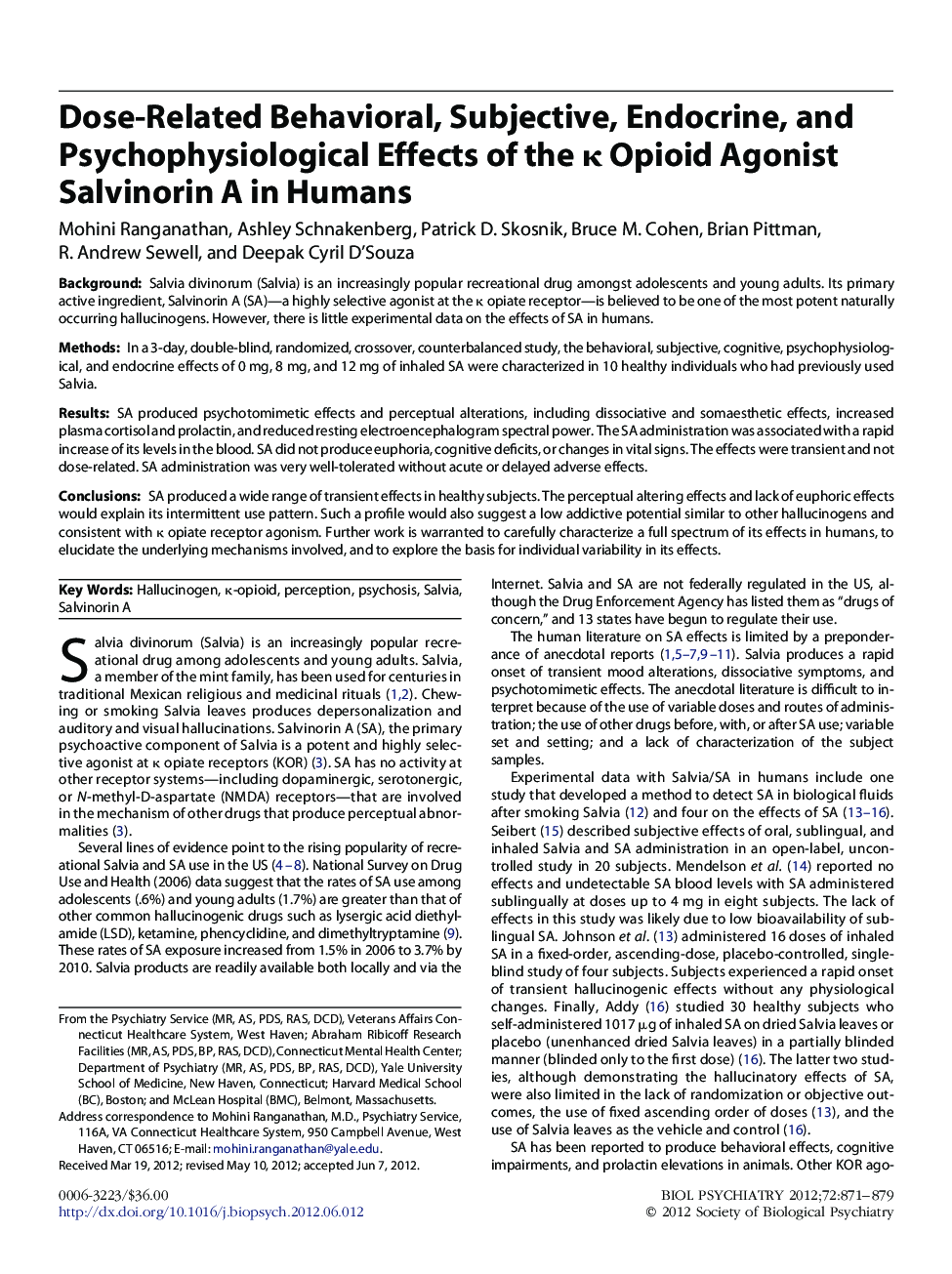| Article ID | Journal | Published Year | Pages | File Type |
|---|---|---|---|---|
| 6227495 | Biological Psychiatry | 2012 | 9 Pages |
BackgroundSalvia divinorum (Salvia) is an increasingly popular recreational drug amongst adolescents and young adults. Its primary active ingredient, Salvinorin A (SA)-a highly selective agonist at the κ opiate receptor-is believed to be one of the most potent naturally occurring hallucinogens. However, there is little experimental data on the effects of SA in humans.MethodsIn a 3-day, double-blind, randomized, crossover, counterbalanced study, the behavioral, subjective, cognitive, psychophysiological, and endocrine effects of 0 mg, 8 mg, and 12 mg of inhaled SA were characterized in 10 healthy individuals who had previously used Salvia.ResultsSA produced psychotomimetic effects and perceptual alterations, including dissociative and somaesthetic effects, increased plasma cortisol and prolactin, and reduced resting electroencephalogram spectral power. The SA administration was associated with a rapid increase of its levels in the blood. SA did not produce euphoria, cognitive deficits, or changes in vital signs. The effects were transient and not dose-related. SA administration was very well-tolerated without acute or delayed adverse effects.ConclusionsSA produced a wide range of transient effects in healthy subjects. The perceptual altering effects and lack of euphoric effects would explain its intermittent use pattern. Such a profile would also suggest a low addictive potential similar to other hallucinogens and consistent with κ opiate receptor agonism. Further work is warranted to carefully characterize a full spectrum of its effects in humans, to elucidate the underlying mechanisms involved, and to explore the basis for individual variability in its effects.
